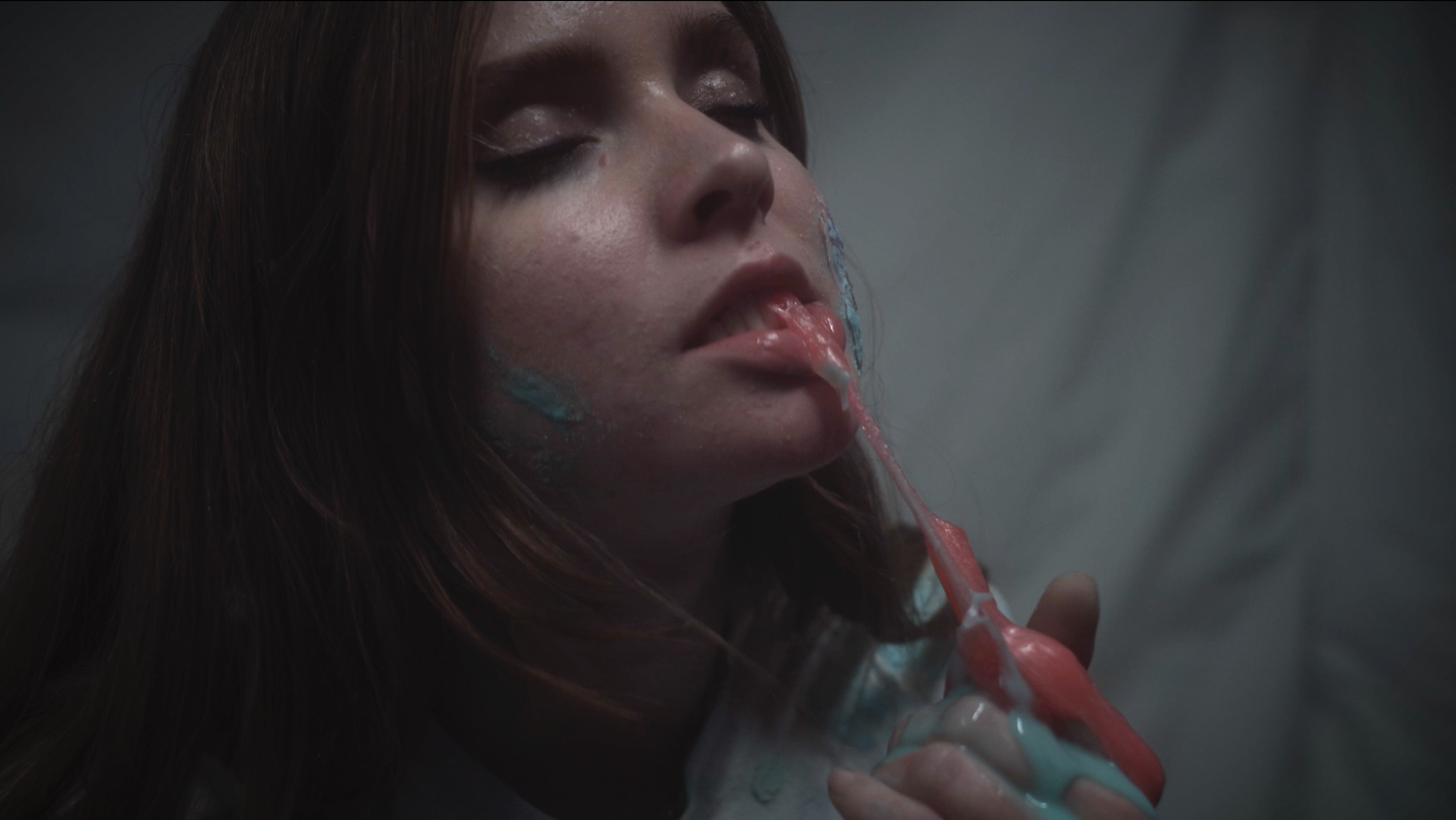
Exploitation film Sugar Rot, which had its Quebec premiere at Fantasia Festival, follows punk girl Candy (Chloë Macleod, Foreigner) who works at an ice cream shop. When she is brutally assaulted by an ice cream man, she becomes the host of a mutant foetus and begins to transform into ice cream. Around her, store owner Barbie (Michela Ross) is obsessed with conception and plastic surgery, fuelled by her desire to please her boyfriend, meanwhile heartthrob Sid (Drew Forster), who bears resemblance to Sid Vicious, plays Candy’s sweet-toothed, antagonistic love interest. Despite the way she’s treated by everyone around her, including her own mother, Candy feels pressured to remain as sweet as possible.
Writer and director Becca Kozak uses the image of a woman turning into ice cream as a powerful metaphor for how society views women as objects to be consumed and disposed of. Exploring this concept through the lens of the exploitation genre is bound to split audiences down the middle. Known for its transgressive nature, exploitation cinema thrives on causing controversy through sensationalised depictions of taboo subjects, including graphic sex and violence. These films exist to shock and provoke, as well as to challenge cultural boundaries and societal anxieties. Whether they critique or perpetuate what they depict, however, is a frequent topic of debate. Often, the line is blurred intentionally.
Visually, Sugar Rot lives up to its name: bright, sweet, and decaying. It’s very 80s John Waters, complete with nods to Russ Meyer. With its sticky, bubblegum pink body horror, Kozak takes the hyper-feminine fever dream and filters it through monstrosity as female objectification is portrayed as a consumable disease. Candy’s inability to survive can be read as a lack of empowerment or a failure of the film, but Kozak’s bleak ending boldly comments on how deeply entrenched misogyny really is in our society’s gender roles and power dynamics. Would we really blame girls and women for not overcoming this systemic disease? The reality is that we often do. Candy being the one to become diseased as opposed to her oppressors further emphasises this.

It’s hard to watch Candy be assaulted over and over again, especially when no one takes it seriously. Again, this portrays a harsh reality: assault is both taboo and commonplace, leaving people either uncomfortable or blasé. Kozak makes you feel uncomfortable as the ugliest parts of society are reflected back at us. Candy’s pregnancy, portrayed as a literal parasite, provides further commentary on bodily autonomy and lends itself to the film’s satire of anti-feminist rhetoric. “You must be infected with feminism,” Barbie bites at Candy. “You know there’s more to life than just sexual assault and abortion like you feminists think!” Everyone is simultaneously disgusted by Candy but also wants a piece of her, which highlights the double standards women generally live under. She is rotting from the inside out, robbed of true pleasure, and even of basic support. Candy is deeply dissatisfied with her life in a way that feels all too real and often agonizing to watch.
While low-budget, as tends to be the case with exploitation films, Sugar Rot is well-crafted, though it’s let down by poor audio. The majority of dialogue feels dubbed over and separate from the film’s world. It’s unclear to me whether this was an intentional aesthetic choice to aid the experience or not sound is an area to improve upon. There’s also the occasional narrative confusion, especially as to whether the ice cream shop is also a strip club. Music from Pet Blessings, Daddy Issues, and Dayglo Abortions is a strength as this blistering punk soundtrack helps set the tone for the film. Ultimately, Sugar Rot is a vulnerable commentary on the aftermath of sexual violence as it showcases the the most relentless, brutal, and darkest parts of every-day society. Kozak does not shy away from pushing boundaries and eliciting extreme discomfort.




Leave a Reply